I love writing quotes. Recently, I stumbled across new-to-me writing, inspirational, and life advice quotes from famous authors. Too much spot-on advice not to share here on TKZ. Plus, I’m writing eighteen different articles to spread the news about my new eco-thriller. 😉
Writing Quotes
“The purpose of a writer is to keep civilization from destroying itself.” — Albert Camus
“As a writer, you should not judge, you should understand.” — Ernest Hemingway
“To produce a mighty book, you must choose a mighty theme.” — Herman Melville
“As for ‘Write what you know,’ I was regularly told this as a beginner. I think it’s very good rule and have always obeyed it. I write about imaginary countries, alien societies on other planets, dragons, wizards, the Napa Valley in 22002. I know these things. I know them better than anybody else possibly could, so it’s my duty to testify about them.” — Ursula K. Le Guin
“You should write because you love the shape of stories and sentences and the creation of different words on a page. Writing comes from reading, and reading is the finest teacher of how to write.” — Annie Proulx
“Find out the reason that commands you to write; see whether it has spread roots into the very depth of your heart; confess to yourself you have to die if you were forbidden to write.” — Rainer Maria Rilke
“A good writer possesses not only his own spirit but also the spirit of his friends.” — Friedrich Nietzsche
“Your writing voice is the deepest possible reflection of who you are. The job of your voice is not to seduce or flatter or make well-shaped sentences. In your voice, your readers should be able to hear the contents of your mind, your heart, your soul.” — Meg Rosoff
“Do not hoard what seems good for a later place in the book, or for another book. Give it, give it all, give it now.” — Annie Dillard
“If there’s a book that you want to read, but it hasn’t been written yet, then you must write it.” — Toni Morrison
“Tears are words that need to be written.” — Paulo Coelho
Inspirational Quotes by Writers
“You cannot find peace by avoiding life.” — Virginia Woolf
“The strongest principle of growth lies in the human choice.” — George Eliot
“Focus more on your desire than on your doubt, and the dream will take care of itself.” — Mark Twain
“Jump off a cliff and build your wings on the way down.” — Ray Bradbury
“I hope that in this year to come, you make mistakes. Because if you are making mistakes, then you are making new things, trying new things, learning, living, pushing yourself, changing yourself, changing your world. You’re doing things you’ve never done before, and more importantly, you’re doing something.” — Neil Gaiman
“Don’t bend. Don’t water it down. Don’t try to make it logical. Don’t edit your own soul according to the fashion. Rather, follow your most intense obsessions mercilessly.” — Franz Kafka
“Keep away from people who try to belittle your ambitions. Small people always do that, but the really great make you feel that you, too, can become great.” — Mark Twain
“Maybe it’s not about having a beautiful day, but about finding beautiful moments. Maybe a whole day is just too much to ask. I could choose to believe that in every day, in all things, no matter how dark and ugly, there are shards of beauty if I look for them.” — Anna White
“Trust our heart if the seas catch fire, live by love though the stars walk backwards.” — E. E. Cummings
“One day I find the right words, and they will be simple.” — Jack Kerouac
“I can be changed by what happens to me. But I refuse to be reduced by it.” — Maya Angelou
“The most common way people give up their power is by thinking they don’t have any.” — Alice Walker
Life Advice From Writers
“To live is the rarest thing in the world. Most people exist, that is all.” — Oscar Wilde
“That it will never come again is what makes life so sweet.” — Emily Dickinson
“It is never too late to be what you might have been.” — George Eliot
“To be yourself in a world that is constantly trying to make you something else is the greatest accomplishment.” — Ralph Waldo Emerson
“Pain is inevitable. Suffering is optional.” — Haruki Murakami
“Be kind, for everyone you meet is fighting a hard battle.” — Plato
“Unable are the loved to die for love is immortality.” — Emily Dickinson
“Let me live, love, and say it well in good sentences.” — Sylvia Plath
“Don’t let your happiness depend on something you may lose.” — C.S. Lewis
Are you inspired yet? Great! Get to work. 😉 Do you have a favorite?
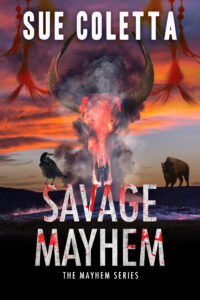 Amidst the wild and unforgiving landscapes of Yellowstone Park, eco-warriors Mayhem and Shawnee race against the clock to protect an American Buffalo herd from the ruthless Killzme Corporation.
Amidst the wild and unforgiving landscapes of Yellowstone Park, eco-warriors Mayhem and Shawnee race against the clock to protect an American Buffalo herd from the ruthless Killzme Corporation.
With a massive bounty on their heads and an army of killers on their trail, Mayhem and Shawnee risk it all to preserve the sacred lineage of the Innocent Ones.
There is no line Shawnee and Mayhem won’t cross.
Even murder.
As the danger intensifies and the clock winds down, will they be able to save the herd? Or will this be the mission that finally breaks them?
Preorder for 99c. Sale ends on release day, April 11, 2024.

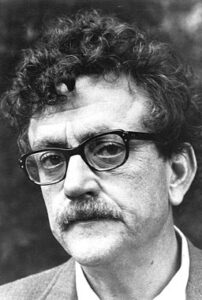
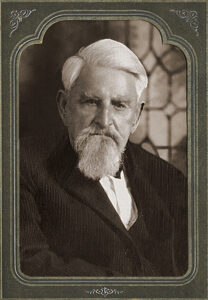
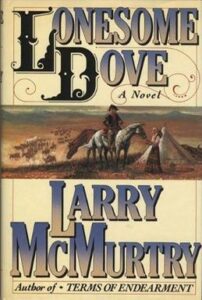 released in 1985.
released in 1985.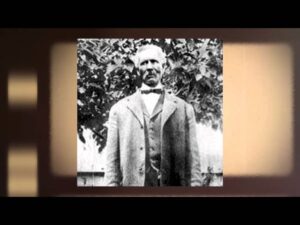





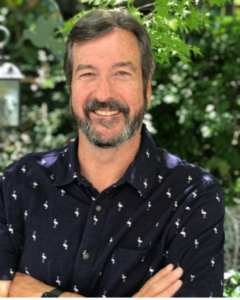 James L’Etoile uses his twenty-nine years behind bars as an influence in his award-winning novels, short stories, and screenplays. He is a former associate warden in a maximum-security prison, a hostage negotiator, and director of California’s state parole system. His novels have been shortlisted or awarded the Lefty, Anthony, Silver Falchion, and the Public Safety Writers Award.
James L’Etoile uses his twenty-nine years behind bars as an influence in his award-winning novels, short stories, and screenplays. He is a former associate warden in a maximum-security prison, a hostage negotiator, and director of California’s state parole system. His novels have been shortlisted or awarded the Lefty, Anthony, Silver Falchion, and the Public Safety Writers Award.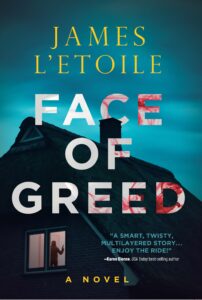
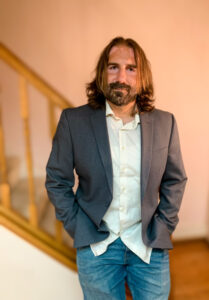
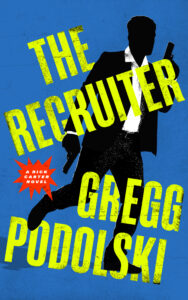 Several weeks ago, Blackstone sent me an ARC (advanced review copy) which I’d requested.
Several weeks ago, Blackstone sent me an ARC (advanced review copy) which I’d requested.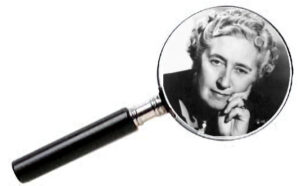
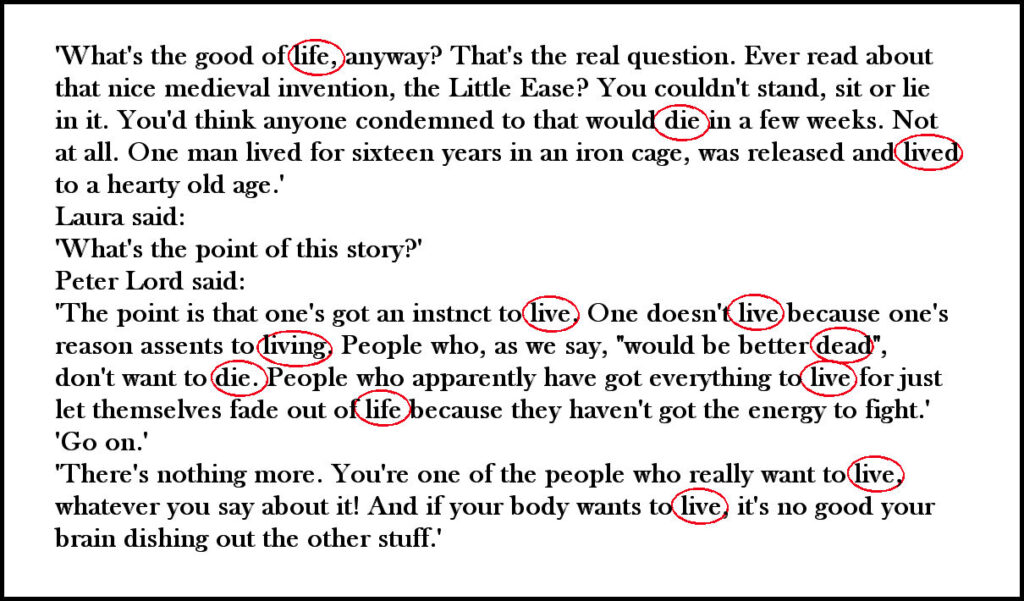
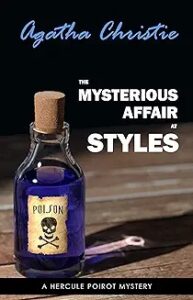 Dr. Danielsson plotted information about these aspects on a three-dimensional graph and plotted the same criteria from Arthur Conan Doyle’s works on the same graph. Christie’s books exhibited a consistency shown visually by her plotted points being clustered together while the points of Doyle’s stories were spread farther apart indicating his works were more dissimilar when compared to each other. This indicated that Doyle’s style had changed through the years while Christie’s had remained remarkably consistent.
Dr. Danielsson plotted information about these aspects on a three-dimensional graph and plotted the same criteria from Arthur Conan Doyle’s works on the same graph. Christie’s books exhibited a consistency shown visually by her plotted points being clustered together while the points of Doyle’s stories were spread farther apart indicating his works were more dissimilar when compared to each other. This indicated that Doyle’s style had changed through the years while Christie’s had remained remarkably consistent.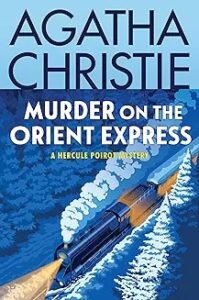
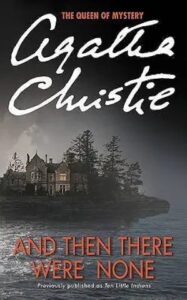 While some famous characters appear in multiple books and are popular with the reading public (e.g., Hercule Poirot, Miss Marple, Captain Hastings), the number of characters in each novel may be just as important. This prompted an interesting theory by David Shephard, Master trainer in Neuro-Linguistic Programming.
While some famous characters appear in multiple books and are popular with the reading public (e.g., Hercule Poirot, Miss Marple, Captain Hastings), the number of characters in each novel may be just as important. This prompted an interesting theory by David Shephard, Master trainer in Neuro-Linguistic Programming.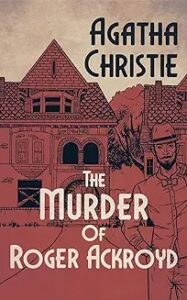
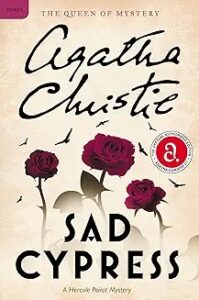 Although I found a site with the
Although I found a site with the 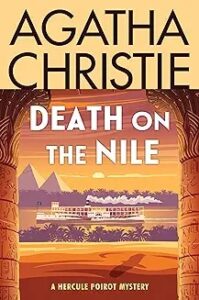
 “Very few of us are what we seem.” –Agatha Christie
“Very few of us are what we seem.” –Agatha Christie Gather round for another of our first-page critiques. The genre is Mystery. My comments to follow.
Gather round for another of our first-page critiques. The genre is Mystery. My comments to follow.